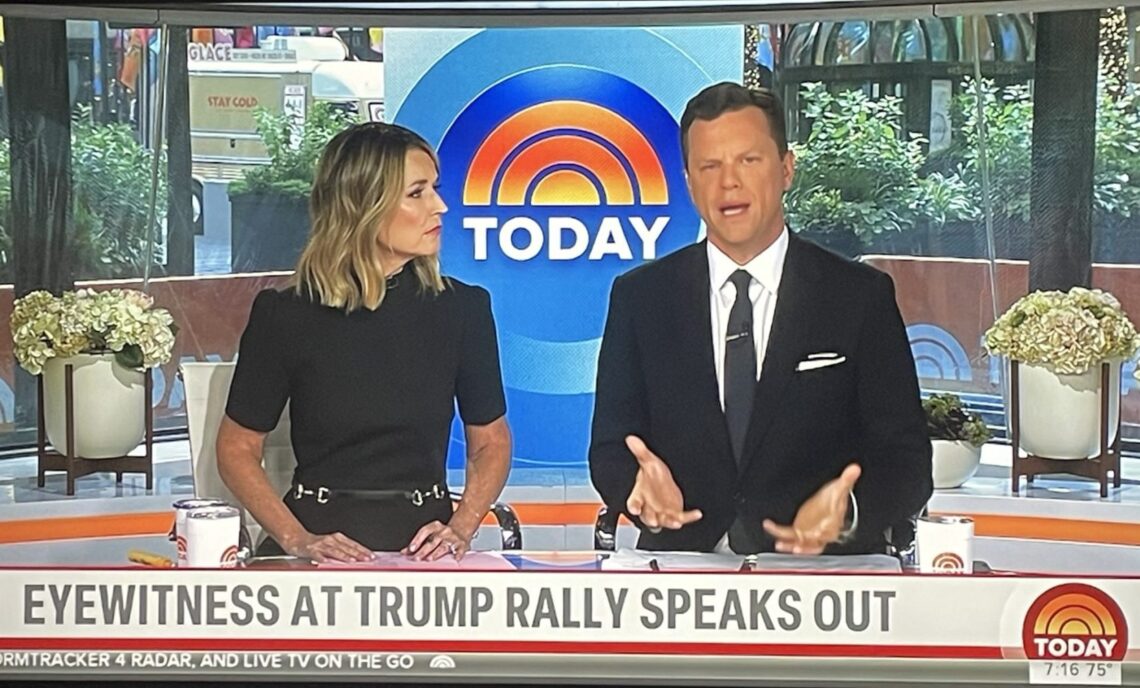The impact of breaking news on TV schedules: A deep dive into the aftermath of a major event
When a significant event occurs, such as the recent assassination attempt on former President Donald Trump, TV networks are quick to adapt their schedules to provide comprehensive coverage. This article explores how major networks and cable-news outlets reworked their programming in response to this alarming incident, offering insights into the behind-the-scenes decisions and the broader implications for the media landscape.
The immediate response: Special morning coverage
In the wake of the assassination attempt, ABC and NBC swiftly restructured their Sunday schedules. ABC aired a special version of “Good Morning America,” featuring its weekday hosts Robin Roberts, George Stephanopoulos, and Michael Strahan. This atypical weekend program provided viewers with in-depth analysis and updates on the situation. For more details, you can watch the trailer and information sheet here: https://trailers.movieetv.com/search/good-morning-america.
Similarly, NBC’s “Today” show brought in weekday co-anchor Savannah Guthrie to join Willie Geist for a special broadcast. This move ensured that viewers received the latest information from trusted and familiar faces. CBS, on the other hand, pre-empted its usual ”CBS Sunday Morning” in favor of a bespoke program anchored by John Dickerson, offering a detailed examination of the incident and its implications.
Cable-news networks: Rolling coverage and special programs
Cable-news networks also revamped their schedules to provide continuous coverage. Fox News Channel, which had already planned a special Sunday schedule for the Republican National Convention, aired a bespoke evening program on Saturday night led by opinion host Sean Hannity. This program delved into the details of the assassination attempt and its potential impact on the political landscape. For more information, visit: https://trailers.movieetv.com/search/fox-news-channel.
CNN brought in Kasie Hunt, who typically anchors a weekday broadcast of “CNN This Morning,” for a special program focused on the aftermath of the incident. This decision ensured that viewers received timely updates and expert analysis. MSNBC, meanwhile, simulcast a rolling-coverage special report from NBC News, featuring hours of coverage led by Hallie Jackson and Ana Cabrera. This approach provided viewers with a comprehensive understanding of the event and its broader context.
Local stations and the business ramifications
Major local stations, including New York’s WCBS and WABC, also mounted their own coverage, ensuring that viewers received localized updates and perspectives. The major broadcast networks pre-empted most of their Saturday-night programming to cover the incident, with Lester Holt anchoring coverage for NBC News, Whit Johnson leading hours of coverage for ABC News, and CBS News offering Washington-based coverage led by Adriana Diaz.
Such extensive coverage can have significant business ramifications. During non-stop coverage of the 9/11 terrorist attack on the World Trade Center in 2001, TV networks lost more than $310 million in advertising, according to an estimate from the ad-tracking firm then known as CMR/Taylor Nelson Sofres. In the case of the recent assassination attempt, few if any networks appeared to take commercials, keeping sponsors away from the prospect of running ads with inappropriate tones next to solemn coverage of a violent act.
Reflections on the role of media in times of crisis
The swift and comprehensive response of TV networks to the assassination attempt on former President Donald Trump highlights the crucial role of media in times of crisis. By providing timely and accurate information, networks help viewers make sense of unfolding events and understand their broader implications. This responsibility underscores the importance of journalistic integrity and the need for media outlets to adapt quickly to changing circumstances.
As we reflect on the media’s role in covering such significant events, it is essential to consider the balance between providing comprehensive coverage and maintaining sensitivity to the gravity of the situation. The decisions made by networks in the wake of this incident offer valuable insights into the complexities of modern journalism and the ever-evolving media landscape.
the media’s response to the assassination attempt on former President Donald Trump serves as a powerful reminder of the critical role that TV networks and news outlets play in informing the public during times of crisis. As we continue to navigate an increasingly complex world, the importance of reliable and responsible journalism cannot be overstated.

 Italian
Italian







